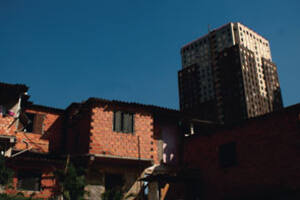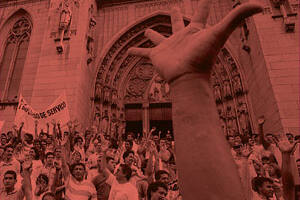Issue # 193 _ March 2012
S&T Policy
História da FAPESP IX

The world in a trance
Metropolises have transformed themselves, along with paradigms of research on urban problems
By Fabrício MarquesScience
Insulin resistance

Visceral connections
Changes in the profile of the intestinal microbiota favor the development of diabetes and obesity
By Ricardo ZorzettoEmerging parasites

Brazilian forms of toxoplasmosis
Local types of encephalitis-causing protozoa are beginning to appear
By Carlos FioravantiForensic analyses

Skin color written in the DNA
Tests discover racial characteristics without the presence of people
By Salvador NogueiraInformation technology

The new wave of qubits
Systems at room temperature could have a quantum feature useful for computer sciences
By Marcos PivettaExtraterrestrial life

Tiny, but hefty
Organisms invisible to the naked eye are able to survive interplanetary trips
By Maria GuimarãesObituary

Uninterrupted activity
Chemist Blanka Wladislaw did research and taught classes with the same intensity
Technology
Biofuels

Productive option
Sorghum is planted to produce ethanol during the sugarcane off-season
By Marcos de OliveiraPaper industry

Totally white
Small company develops enzyme to bleach pulp without harming the environment
By Evanildo da SilveiraWater Analysis

Luminescent yeast
Researchers use microorganism to detect hormone in rivers
By Yuri VasconcelosFilm

State of the art images
System stores and transmits films in ultra high definition
By Evanildo da SilveiraHumanities
Citizenship

When to stop is moving forward
The cycle of strikes from 1978 to 1992 was crucial for the democratization of Brazil
By Carlos Haag



